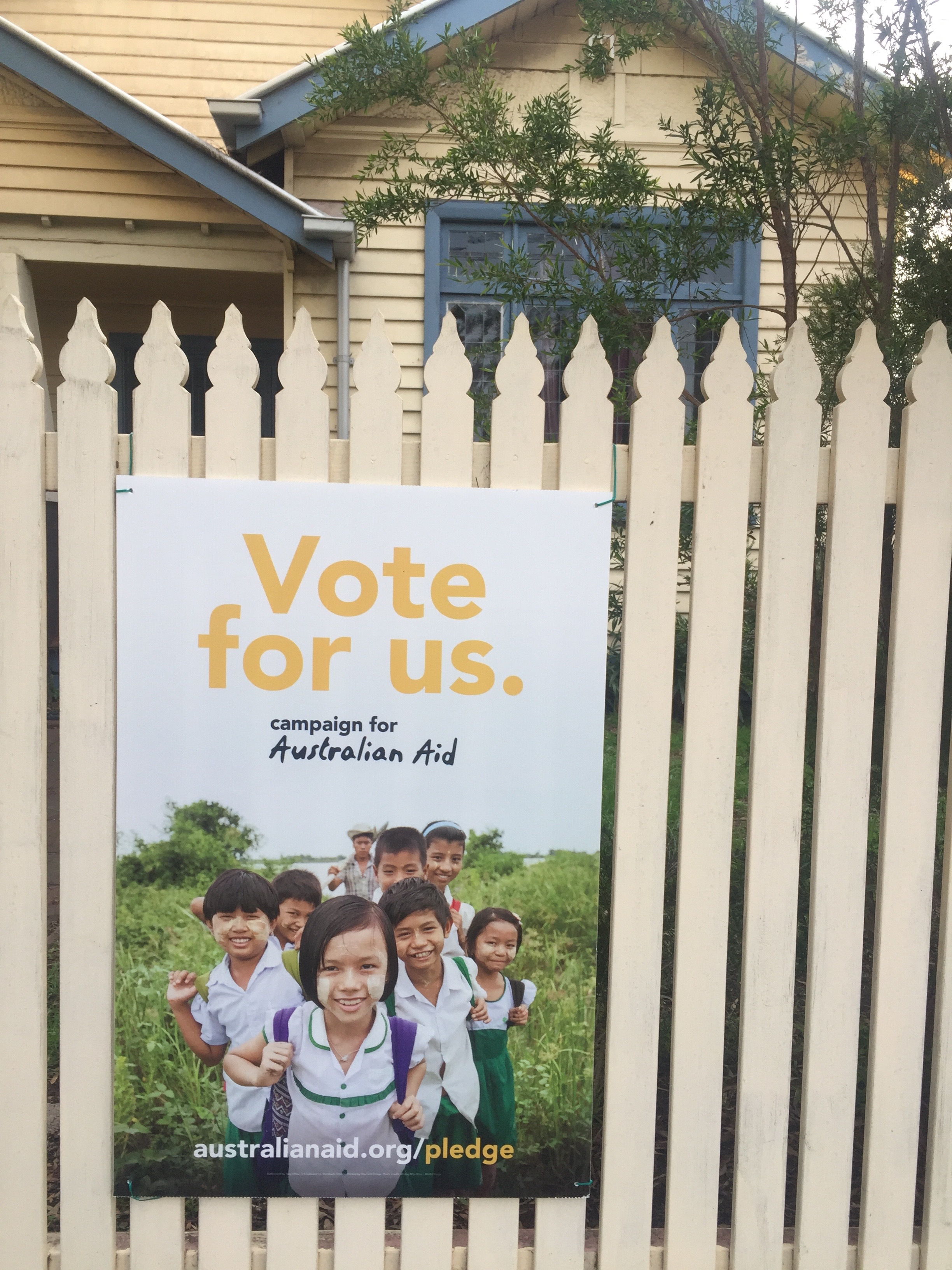I have a campaign poster on my picket fence
For the first time in my home owning career, the picket fence outside my home sports a how-to-vote sign.
This is a change for me. I’m a member of no political party, and I’ve never encouraged my neighbours to vote in any particular way. For almost all of my life, I’ve lived in safe Labor seats, from growing up in working class Brisbane to living in the inner north of Melbourne, my members of Federal Parliament have all been members of the ALP in safe seats. (Only short sojourns in Toowong and Marsfield found me in conservative territory.) My vote in my electorate hasn’t made a difference over the years.
More importantly, I think that there is much more to politics than voting. It’s one thing to distribute a few votes once every few years in to record your voice about how we are governed. There are plenty of other, more effective ways to take part in our common life, both locally, and globally. Broader political action can take many different forms, beyond party politics. Different forms of political action include investigating and exposing injustice or corruption, campaigning for change, making proposals for different ways to do things, protesting, raising awareness, building alternative communities and political structures and resisting injustice—through to covert and overt struggle and revolution. Politics is a complicated business with many different strands.
So, given all of that, why do I have a campaign poster on my fence?
This election, I’ve decided to add my small voice to the cacophony of this long election campaign—not because I have fallen in love with electoral politics, and not because I’m devoted to any of the candidates or political parties on offer. The poster on my suburban picket fence is from the Campaign for Australian Aid. It doesn’t feature the smiling face of a political candidate, but rather, the smiling faces of a group of schoolchildren in Myanmar, who attend a school supported by World Vision and Australian Aid, and the poster says “Vote for Us.”

The lead-up to this most recent federal election has seen an unprecedented cut in Australia’s aid budget, with the Coalition government carving yet more from its already slim allocation—to an historic low of 0.23% of our Gross National Income, at a time when other countries manage to be significantly more generous. We are nowhere near our stated target of 0.7% of GNI, and we’re getting further from it. This decline must stop.
You can argue whether any individual aid program is the best we could do with the money, but if you want to find waste in our spending, look elsewhere. Aid programs funding education, health or agricultural intiatives in neighbouring countries—no matter how badly managed—cannot waste the kind of money we manage throw away on massive expenditure on weapons, like submarines or fighter planes. Our country’s reflex reaction to look inward, to ignore our neighbours and tighten our borders is a worrying sign, and it’s one we should resist in all its forms.
I’m encouraging my local neighbours to keep our country’s neighbours in mind when they cast their votes—don’t vote for a candidate or for a party that ignores our neighbours, or who places short term self interest above the interests of others.
I like the poster on my picket fence, not only because the smiling faces of the schoolkids in Myanmar are a refreshing change from the smiling faces of party candidates, but because it reminds and challenges us about our place in the world. Our political actions, whether our votes or our voices, can aim at for more than our own narrow self interest. Challenges over climate change, food insecurity, and refugee movements will only increase in the years ahead. To meet these challenges, we will need the cooperation of our neighbours. We can start acting just a little bit more like a good neighbour now. It’s the least we could do.
If you want to know more about the Campaign for Australian Aid, visit https://australianaid.org, and consider the wider world when you cast your vote.
